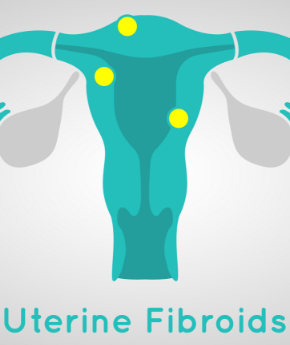When Should I Consult a Doctor for Irregular Periods?

Irregular periods are not a healthy sign, and while the menstrual cycle may not be the same every month in some cases, major changes to it may indicate conditions that need your attention. The regularity of your period might also be a sign of other health issues. Knowing what's normal and what isn't with your cycle is a crucial part of taking charge of your health.
What is a Regular Period?
Knowing how long your cycle lasts is an important component of keeping track of it. However, when we talk about the length of the menstrual cycle, we're not only referring to the number of days when bleeding (which is your "period") occurs. The time it takes for your body to complete a full menstrual cycle — from the first day of your period to the first day of the following period — is what we're talking about.
A longer monthly cycle (for example, 31 days between periods) or a shorter monthly cycle (for example, 21 days between periods) does not always imply any problems. However, if the length of your cycle begins to change or if your period abruptly stops occurring, you should consult a gynaecologist. It's important to maintain your normalcy in this situation.
How Do you Identify Irregular Periods?
Irregular periods are when your menstrual bleeding is abruptly different in length and frequency from what you're used to. The consistency of your periods is more essential than the length of your periods. A longer monthly cycle isn't necessarily a problem, but if your period begins to fluctuate and change, it's time to ask a doctor. Below are signs of irregular menstruation -
- The number of days between periods decreases or increases.
- You don't bleed for the same number of days every month.
- You have atypical uterine bleeding (your periods become heavier or lighter, you bleed or spot between monthly cycles)
- Spotting between periods, bleeding for more than a week, a period that abruptly ceases, or is highly painful, unusually heavy periods are all examples of menstrual cycle alterations.
- You have an underlying medical condition or a lifestyle trigger. Irregular menstrual cycle and abnormal uterine bleeding can be caused by hormonal imbalances, as well as disorders such as endometriosis, hypo or hyperthyroidism, PCOS, and uterine fibroids. Going off birth control and stress can also throw your lead to irregular periods.
- If you haven't had a period in 90 days.
Reason for Irregular Periods
There are a variety of reasons for an irregular menstrual cycle, and it's always a good idea to consult a gynaecologist if you think you have irregular periods. Let's take a look at some of the most prevalent causes of irregular periods.
PCOS
The ovaries produce a lot of androgens, or "male hormones," in patients with PCOS. Because the hormonal imbalance makes it difficult for the eggs to mature, ovulation and menstruation may be irregular or non-existent. Thus, PCOS is one of the biggest reasons for irregular periods.
Weight and Physical Activity

Exercise, weight loss, weight gain, and eating disorders can all cause an imbalance in your energy levels, which can affect your period. Changes in menstruation function can be caused by even minor shifts in energy balance.
Pregnancy

During pregnancy, the menstrual cycle ceases, and hormonal changes caused by breastfeeding might cause delay or an irregular menstrual cycle.
Menopause
As you approach menopause, your menstruation may become more erratic (going 12 months without a period).
Uterine Fibroids

Fibroids in the uterus are noncancerous growth that form during the childbearing years. They can induce abnormal uterine bleeding between periods, as well as prolonged or excessive bleeding throughout your period. Birth control, endometriosis, hyperthyroidism, and stress are a few more variables that can cause irregular menstruation.
When should you consult your doctor?

Having irregular periods can greatly affect other aspects as well, and hence if you experience any of the following symptoms, you should ask a doctor for advice on the line of treatment:
- For the past 90 days, you haven't had a period.
- Your period has become erratic.
- You have your period more frequently than every 21 days.
- You menstruate every 35 days or less.
- Your period is more than weeklong.
- Your menstrual cycle has become extremely heavy.
- There is bleeding between periods.
- Your periods are excruciating.
Irregular menstruation can be an indication of underlying medical issues, so it is advised to keep track of your period health and consult a doctor if anything looks unusual.






